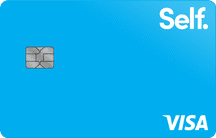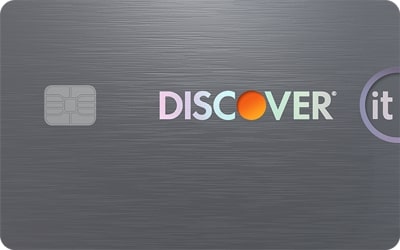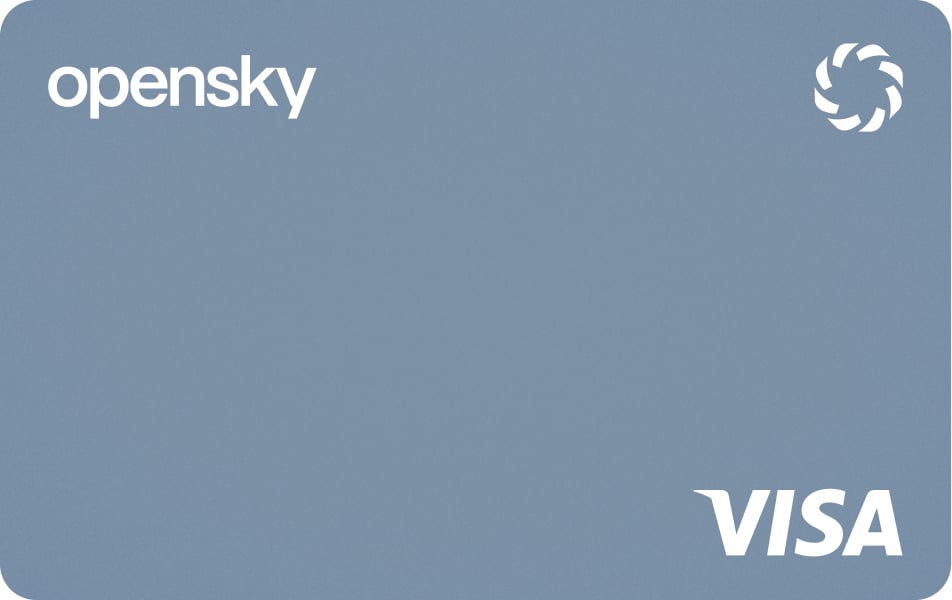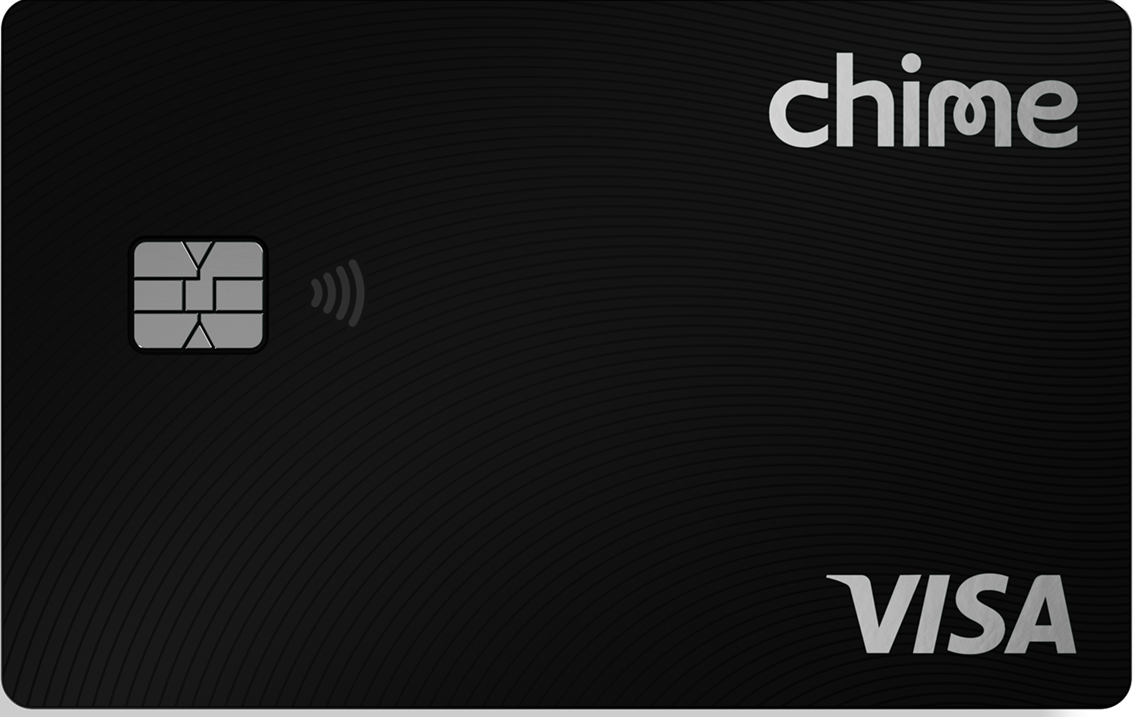Self Visa Review: A Secured Card With a Low, Flexible Deposit
The Bottom Line
4.5
It’s more accessible than traditional secured credit cards — but you can find no-annual-fee options with even more flexible deposit requirements, not to mention rewards, which aren't available here.

Rates, fees and offers
Rates, fees and offers
Annual fee
$0 intro first year, $25 thereafter
Rewards rate
None
Bonus offer
N/A
Intro APR
N/A
Ongoing APR
APR: 27.49% Variable
Foreign transaction fee
N/A
More details from Self
More details from Self
- With no credit check or prior credit required, anyone can start building credit. Fund your card with a minimum security deposit of $100 and use it anywhere Visa® is accepted in the U.S. Build credit by making on-time payments and maintaining a low credit utilization ratio. Every on-time payment helps build credit history.
- If you don’t have the $100 security deposit today, consider a Credit Builder Account² starting at $25 a month⁴ . Consistent, on-time payments help you build credit and build savings to secure the secured Self Visa® Credit Card³.
- †$0 annual fee for the first year only, $25 annual fee thereafter. Variable APR of 27.49%. Offer valid for new customers only.
- *The secured Self Visa® Credit Card is issued by Lead Bank or First Century Bank, N.A., each Member FDIC.
- ²Credit Builder Accounts & Certificates of Deposit made/held by Lead Bank, Sunrise Banks, N.A., First Century Bank, N.A., each Member FDIC. Subject to credit approval.
- ³Qualification for the secured Self Visa® Credit Card is based on meeting eligibility requirements, including income and expense requirements and establishment of security interest. Criteria Subject to change.
- ⁴$25/mo, 24 mos, 15.92% APR; $35/mo, 24 mos, 15.69% APR; $48/mo, 24 mos, 15.51% APR; $150/mo, 24 mos, 15.82% APR. See self.inc/pricing
Pros and Cons
Pros
No hard credit check required
Relatively low security deposit
Cons
Annual fee
Can't get the card immediately
No rewards
Detailed Review
The secured Self Visa® Credit Card — issued by Lead Bank or First Century Bank — offers those with no credit or poor credit a unique path to establish a credit history.
Secured credit cards typically require a credit check and a steep upfront cash security deposit, which can be obstacles for those with bad credit history or little access to immediate funds. The secured Self Visa® Credit Card works a little differently, allowing you to skip the hard credit check and requiring a lower deposit than traditional secured credit cards. And if that upfront deposit still isn't affordable for you, the card lets you cover it by opening a Credit Builder Account, a secured installment loan, in which you contribute smaller amounts over time.
It's an interesting model that can eliminate significant roadblocks to credit for many, but the card has its own hurdles — including an annual fee — that you'll have to clear.
The secured Self Visa® Credit Card: The basics
Card type: Secured.
Annual fee: $0 intro first year, $25 thereafter.
Interest rate: The ongoing APR is 27.49% Variable.
Bonus offer: N/A.
Rewards: None.
Other fees:
Late fee: Up to $15.
Return fee: Up to $15 per failed payment from a bank account.
Expedited payment fee: $3.50 when you pay your credit card balance with a debit card.
Compare to Other Cards

Benefits and Perks
No hard credit check
Usually when you apply for a credit card, the issuer conducts a hard inquiry that temporarily lowers your credit scores. You don’t have to worry about that with The secured Self Visa® Credit Card. (The issuer may conduct what's known as a "soft inquiry," but those won't harm your scores.)
Low, flexible deposit requirement
The secured Self Visa® Credit Card charges an upfront minimum security deposit of $100, which becomes your credit limit. That's significantly lower than the typical $200 to $300 that some other secured credit cards require. You can add more money — and thus increase your credit limit — if that's within your budget.
You can also opt to cover the deposit over time in smaller amounts by opening a Credit Builder Account, which is a secured installment loan that you'll make payments on, starting at $25 per month. The installments you pay accumulate in a federally insured certificate of deposit. You could potentially access The secured Self Visa® Credit Card with money saved up in the Credit Builder Account in three months, still without a credit check. And because a major factor in your credit scores is your "mix of accounts," having two lines of credit can be beneficial. (This option, however, comes with costs and drawbacks. More on that below.)
Payment history reported to credit bureaus
When you use The secured Self Visa® Credit Card and pay the bill, that payment history — which is a large factor in your credit scores — is reported to all three major credit bureaus: Equifax, Experian and TransUnion. These companies record the information used to calculate your credit scores, making it an essential step in a credit-building journey. And as noted above, if you happen to also have a Credit Builder Account with Self, that can further help your scores.
You can work your way up to an unsecured Self card, with strings
As with other secured cards, if you maintain a good payment history with The secured Self Visa® Credit Card, then your deposit is refundable should you decide to close the account. But unlike a lot of other secured cards, this one also offers the possibility of eventually graduating to a traditional unsecured credit card (meaning a card that doesn't require a deposit). In this case, if you've had The secured Self Visa® Credit Card or an active Credit Builder Account for at least six months with on-time payments, you can apply for the unsecured Self Plus Credit Card, which offers a minimum starting credit limit of $200 and an annual fee of $35. (This option, too, comes with caveats you can read about below.)
Drawbacks and Considerations
An annual fee
The annual fee on this card is low — $0 intro first year, $25 thereafter — but any number of secured credit cards and starter credit cards let you build credit without this added cost. Some even go as far as charging no interest and requiring no minimum deposit requirement.
The Chime Card™, Current Build Card and Varo Believe Secured card, for instance, require you to open an account with the company that offers the cards. That account is used to fund the security deposit in the amount of your choice. These cards lack upgrade paths, but crucially, they also lack annual fees and APRs.
See more from Chime®
Chime says the following:
The Chime Card™ is issued by The Bancorp Bank, N.A. or Stride Bank, N.A., pursuant to a license from Visa U.S.A. Inc. and may be used everywhere Visa credit cards are accepted. Please see the back of your card for its issuing bank.
Based on a representative study conducted by Experian® in Sept 2025, the top 10% of members who made their first purchase with Credit Builder, an earlier version of Chime Card™, between April and August 2024, observed a FICO® Score 8 increase of 71 points after approximately 8 months. Average increase of 28 points across all participants in the study. Credit score improvement not guaranteed. Paying on time may increase your score, while late payment may decrease your score. Other credit activity can impact your score. Credit score is one of many factors creditors may consider in evaluating credit applications.
On-time payment history may have a positive impact on your credit score. Late payment may negatively impact your credit score. Chime will report your activities to Transunion®, Experian®, and Equifax®. Impact on your credit may vary, as Credit scores are independently determined by credit bureaus based on a number of factors including the financial decisions you make with other financial services organizations.
Money added to the Chime Card™ will be held in a secured deposit account as collateral for your Chime Card™, and you can spend up to this amount. You can use money deposited in your Secured Deposit Account to pay off your charges at the end of every month.
Out-of-network ATM withdrawal and over the counter advance fees may apply.
SpotMe® on Credit is an optional, no interest / no fee overdraft line of credit tied to the Secured Deposit Account available to qualifying members with an active Chime Card Account. To qualify for the SpotMe on Chime Card service, you must receive $200 or more in qualifying direct deposits to your Chime® Checking Account each month and have activated your physical secured Chime Visa® Credit Card or Chime Visa® Debit Card. Qualifying members will be allowed to overdraw their Secured Deposit Account up to $20, but may later be eligible for a higher limit of up to $200 or more based on Chime account history, direct deposit frequency and amount, spending activity and other risk-based factors. The SpotMe on Chime Card Limit will be displayed within the Chime mobile app and is subject to change at any time, at Chime’s or its banking partners’ discretion. Although Chime does not charge any overdraft fees for SpotMe on Chime Card, there may be out-of-network or third-party fees associated with ATM transactions and fees associated with OTC cash withdrawals. SpotMe on Chime Card won’t cover non-card transactions. SpotMe on Chime Card Terms and Conditions.
With a qualifying direct deposit, earn 1.5% cash back on eligible secured Chime Visa® Credit Card purchases.
No rewards
Rewards aren't a priority when working on your credit, but it's worth noting that some starter cards do offer modest spending incentives — unlike The secured Self Visa® Credit Card.
Take the Discover it® Secured Credit Card, for example. It requires a minimum security deposit of $200, but it offers 2% cash back at gas stations and restaurants on up to $1,000 in combined purchases per quarter and 1% cash back on all other purchases. It also has a path to upgrade to an unsecured credit card. The annual fee is $0.
The Capital One Quicksilver Secured Cash Rewards Credit Card also offers rewards, earning 1.5% cash back on all purchases, plus 5% back on hotels, vacation rentals and rental cars booked through Capital One Travel. It has a $0 annual fee and requires a minimum of $200 as a deposit. With a good payment history, this card also offers a pathway to an unsecured credit card.
No international acceptance
The secured Self Visa® Credit Card is not accepted internationally. If you’re planning to travel abroad, you’ll need an alternative payment method to cover costs.
A card like the Capital One Quicksilver Secured Cash Rewards Credit Card doesn’t charge foreign transaction fees and can be used wherever merchants accept it.
Flexible deposit comes with costs
With The secured Self Visa® Credit Card, there are drawbacks if you choose to cover your security deposit over time via the Credit Builder Account. For starters, it means you can't access the card immediately; you'll have to wait several months. But also, the Credit Builder installment loan charges its own interest rate, and those interest charges — unlike a security deposit — will not be refundable. Self's website offers the following example: A $600 loan that you pay back in $25 monthly installments over 24 months will cost you $89, given the loan's APR of nearly 16% (as of this writing). In other words, you would get only $511 back from the $600 loan.
Obviously, $89 is cheaper than putting down $100 upfront to get The secured Self Visa® Credit Card — but again, that $89 will not be refundable, unlike the $100 option.
Add to that the card’s annual fee and any interest costs you may incur if you carry a balance. Suddenly, you’re spending as much as you would to get a more premium rewards credit card, but without the perks that make the price tag worth it.
Upgrading comes with costs, too
While it's nice to know you can work your way toward an unsecured product with Self, it's not an ideal upgrade path, assuming you're offered the option in the first place.
For one thing, unlike with The secured Self Visa® Credit Card, applying for the unsecured Self Plus Credit Card will trigger a hard inquiry on your credit, which can temporarily ding your credit scores — after you just worked to build them up with the secured product. And if you're approved for the unsecured "Plus" version, it won't directly replace The secured Self Visa® Credit Card; instead, going forward you'll have two Self cards — one secured, one unsecured, with each charging its own annual fee.
You could opt then to close the older secured account and have just one annual fee — but closing a credit card can also have an impact on your credit scores.
How To Decide If It's Right For You
Thanks to its reasonable annual fee and low security deposit requirement, The secured Self Visa® Credit Card is a highly accessible option for credit newbies, and the potential built-in upgrade path is also welcome (if somewhat costly).
Ideally, though, you're able to put down that security deposit in full and avoid the costs inherent in choosing the Credit Builder Account option.
Before committing to either route, though, explore your options. It may be possible to qualify for even cheaper starter cards that also earn rewards.
No Annual Fee
Determine your credit limit by setting money aside in your Chime Credit Builder secured account. From there, you can spend what's in your account, and the bill is automatically paid each month. The card charges no interest, as you must pay your monthly bills in full.
Looking For Something Else?
Methodology
NerdWallet reviews credit cards with an eye toward both the quantitative and qualitative features of a card. Quantitative features are those that boil down to dollars and cents, such as fees, interest rates, rewards (including earning rates and redemption values) and the cash value of benefits and perks. Qualitative factors are those that affect how easy or difficult it is for a typical cardholder to get good value from the card. They include such things as the ease of application, simplicity of the rewards structure, the likelihood of using certain features, and whether a card is well-suited to everyday use or is best reserved for specific purchases. Our star ratings serve as a general gauge of how each card compares with others in its class, but star ratings are intended to be just one consideration when a consumer is choosing a credit card. Learn how NerdWallet rates credit cards.
Frequently asked questions
Is the Self Visa credit card a real credit card?
Is the Self Visa credit card a real credit card?
Yes, the Self Visa credit card is a secured card that’s accepted wherever Visa cards are accepted in the U.S.
What is the credit limit on the Self Visa card?
What is the credit limit on the Self Visa card?
The minimum credit limit is $100. As you make payments on your Credit Builder Account each month, you can choose to increase your credit limit up to a maximum limit of $3,000. Plus, Self considers those who have held a Self Visa card for six months or longer for an unsecured credit limit increase.
How do I get a Self Visa credit card?
How do I get a Self Visa credit card?
You must first open a Credit Builder Account, which is a secured installment loan. The installments you pay accumulate in a federally insured certificate of deposit that earns interest until the term ends and the loan is paid off. Once you save $100 or more in the certificate of deposit (which will serve as your security deposit), make three on-time monthly payments and maintain an account that is in good standing, you may qualify for the Self Visa.
Does the Self Visa credit card become unsecured?
Does the Self Visa credit card become unsecured?
If you’ve held the card for six months or longer, Self will consider you for an unsecured credit limit increase, which would make the card a partially unsecured card.
Is Self a good way to build credit?
Is Self a good way to build credit?
Because you’ll have an installment loan and a credit card at the same time, the Self Visa can help you build credit if you make on-time payments and otherwise use the card responsibly. However, the card charges an annual fee and interest if you carry a balance, and you’ll also owe a fee and interest on the installment loan.
About the authors

Melissa Lambarena
Senior Writer & Content Strategist
Sara Rathner
Senior Writer/Spokesperson



